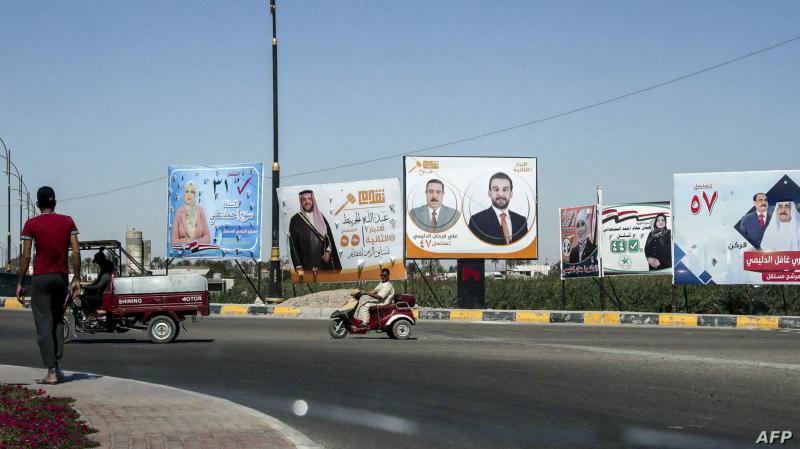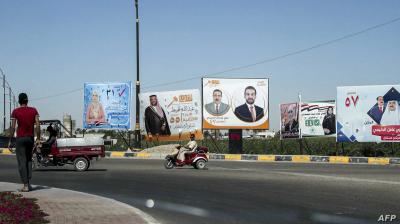On October 10, Iraqis will elect 329 new parliament members in early legislative elections promised by the Iraqi government to calm public anger following the protests that shook the country in October 2019. Traditional political powers still dominate the political landscape. These elections, originally scheduled for 2022, will be held under a new electoral law that utilizes multiple electoral districts and allows voting for a single candidate, aiming to limit the dominance of large parties.
Here are the key numbers and data related to these elections, which are the fifth since 2003:
**Voter Demographics**
Iraq has a population of 40.2 million, with 60% under the age of 25, according to UN statistics. The number of voters in these elections is 25 million, who are distributed across 83 electoral districts and 8,273 polling stations. Theoretically, 23 million voters can vote since they have issued biometric voting cards. Iraqis residing abroad will not vote in this election. A "special vote" will be held on October 8 for security personnel, displaced persons, and prisoners. Each district will elect between three to five representatives based on its population.
**Voting Mechanics**
Candidates will compete for 329 seats, including 83 reserved for women, which represents 25% of the total. There are also nine seats allocated for minorities divided among Christians, Shabaks, Sabeans, Yazidis, and Fayli Kurds. MPs will be elected for a four-year term, utilizing a single non-transferable vote system where voters select one candidate. There are over 3,240 candidates, including approximately 950 women, which is half the number of women who ran in the 2018 elections. Additionally, there are 789 independent candidates, while the rest belong to party lists and coalitions. The voter turnout in 2018 was reported at 44.52%—a statistic critics believe is exaggerated.
**Key Competitors**
Despite the protests in October 2019, traditional political powers remain dominant in the Iraqi political landscape. Activists who participated in the protests, as well as communists, boycotted the electoral process. The Sadrist movement, led by the Shiite cleric Muqtada al-Sadr, has a broad popular base that enabled it to win the highest number of parliamentary seats in the 2018 elections and may further strengthen its presence in this round as well. Pro-Iran factions are represented by candidates within the "Fatah" alliance led by Hadi al-Amiri, who also heads the Badr Organization, one of the key factions in the Popular Mobilization Forces (PMF). For the first time, representatives of these factions reached the parliament after the 2018 elections. The "Haq" party, closely associated with the Hezbollah Brigades, is also a notable player emerging from the PMF participating in the elections.
In terms of alliances, there is the State of Law Coalition led by former Prime Minister Nouri al-Maliki, who has held the longest-serving premiership from 2006 to 2014. The "National State Forces" coalition, led by former Prime Minister Haider al-Abadi, also includes the “Wisdom Movement” led by the Shiite cleric Ammar al-Hakim, aiming to establish itself as a moderate bloc.
Among Sunni parties, there is fierce competition, particularly between the "Progress" alliance led by Parliament Speaker Mohammed al-Halbousi, who has quickly become a significant player in the political scene, and the "Azm" alliance led by Khamis al-Khanjar, who faces U.S. sanctions over corruption issues. Other new lists include “Candidates for Change” led by its secretary-general Hassan al-Rumahi, which consists mainly of independents.
Regarding Kurdish parties, the two main parties, the Kurdistan Democratic Party (KDP) led by Masoud Barzani, and the Patriotic Union of Kurdistan (PUK) headed by the son and nephew of the late President Jalal Talabani, play a key role in the Kurdish political scene in Iraq and the autonomous Kurdistan Region. The opposition in the region includes other parties such as the "Islamic Union Party," "New Generation," and "Gorran," which means "change" in Arabic.




